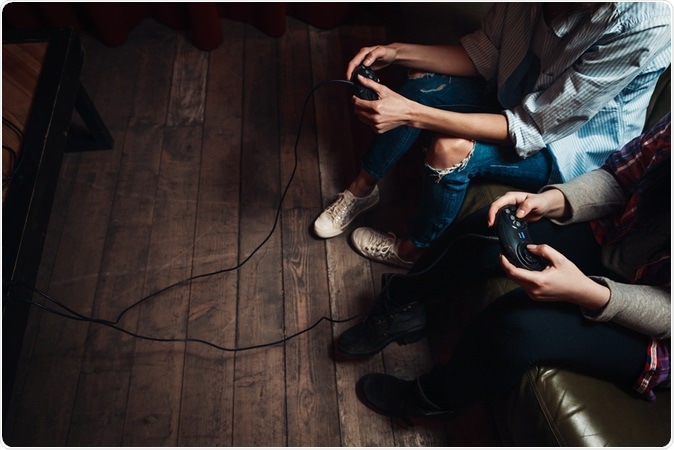The World Health Organization (WHO) this week has released the new ICD – 11 or the 11th edition International Classification of Diseases this week that officially classifies gaming disorder as a condition. Gaming disorders, it says can cause additive behaviours.

Image Credit: Golubovystock / Shutterstock
Smartphones and technology is making inroads into the lives of children and the youth and has sparked concerns. There have been a lot of efforts on the parts of digital giants including Apple to pry people away from their smartphones but most of them ironically use those very smartphones and their apps to become more mindful of time away from the phone and digital media.
Reports have shown that a vast number of people play video games that can be seriously addictive. Over the past 6 months for example, over 30 million Britons played some video game or another. Game sales over the last year has been to the tune of $3.4 billion say the industry sources.
The new classification from WHO thinks that gaming can be classified as a disorder that could become addictive. They have classified it as a diagnosable condition. The ICD-11 that is set to be released describes gaming disorder as, “impaired control over gaming, increasing priority given to gaming over other activities to the extent that gaming takes precedence over other interests and daily activities, and continuation or escalation of gaming despite the occurrence of negative consequences.”
The Society for Media Psychology and Technology, a division of the American Psychological Association as well as the American Psychiatric Association believes that rather than a disorder, gaming has more moral concerns. Some of the experts from both associations say that there are no clearly defined diagnostic criteria or symptoms of the condition.
The WHO says that the diagnosis of gaming disorder would be applicable to gamers who have a broken connection with their family and friends owing to their gaming habits and those who have indifference towards life occurrences in general and academics as a result of gaming for at least 12 months. It is coded as 6C51 in the ICD-11.
Three specific features to be noted are “impaired control over gaming”, “increasing priority given to gaming to the extent that gaming takes precedence over other life interests and daily activities” and “continuation or escalation of gaming despite the occurrence of negative consequences”. Negative consequences include impairment of “personal, family, social, educational, occupational or other important areas of functioning”. There could be continuous, episodic or recurrent occurrence of the gaming behaviour. They have defined both online and offline gaming behaviors.
The WHO says that very few people (0.3 to 1 percent of the general population) are actually suffering from this disorder but it is a mental ailment pattern and needs attention and specific management. The statistics came from a study published in the American Journal of Psychiatry in November 2016. The APA also included this disorder in the appendix of the 2014 edition of the Diagnostic and Statistical Manual of Mental Disorders (DSM) along with other conditions such as caffeine use disorder.